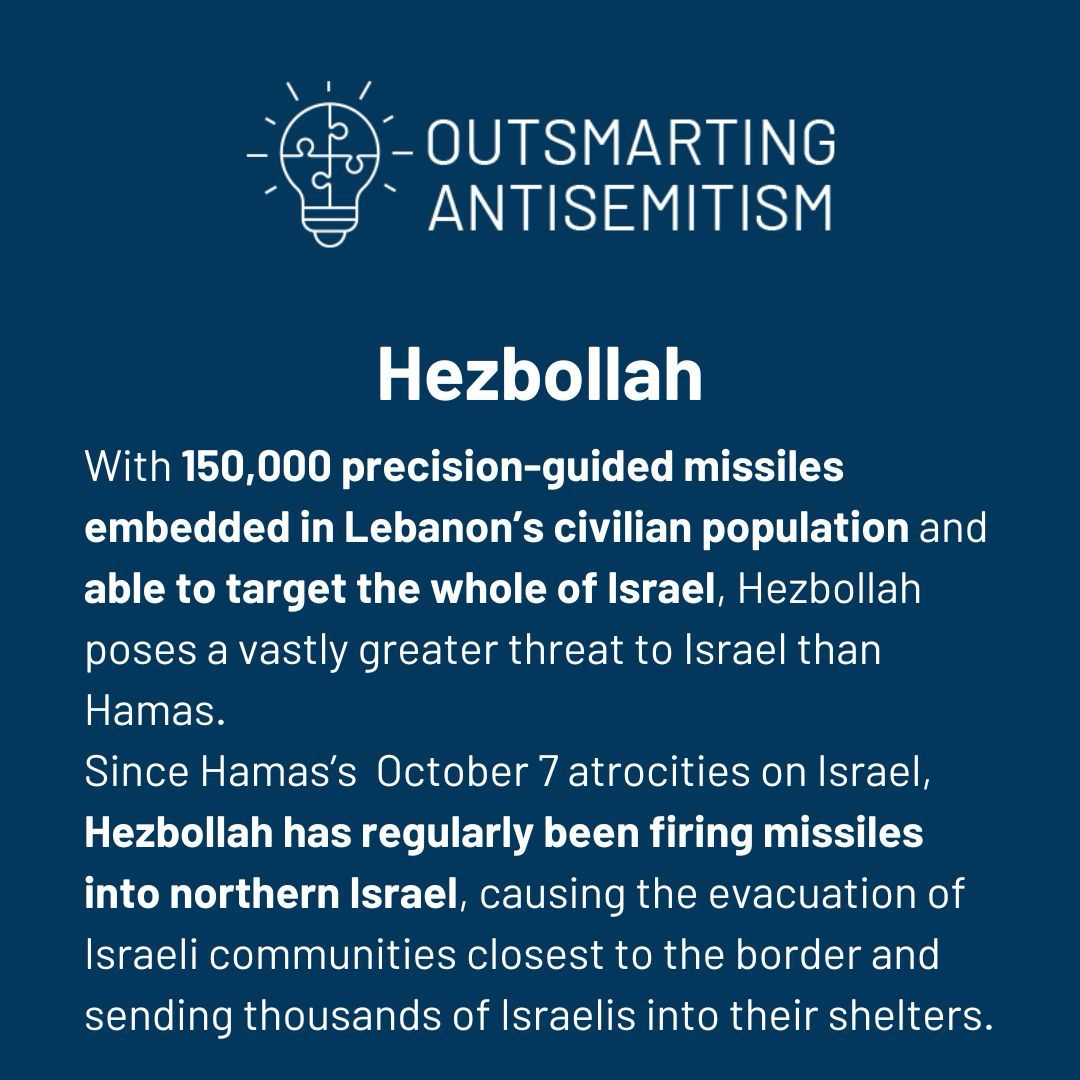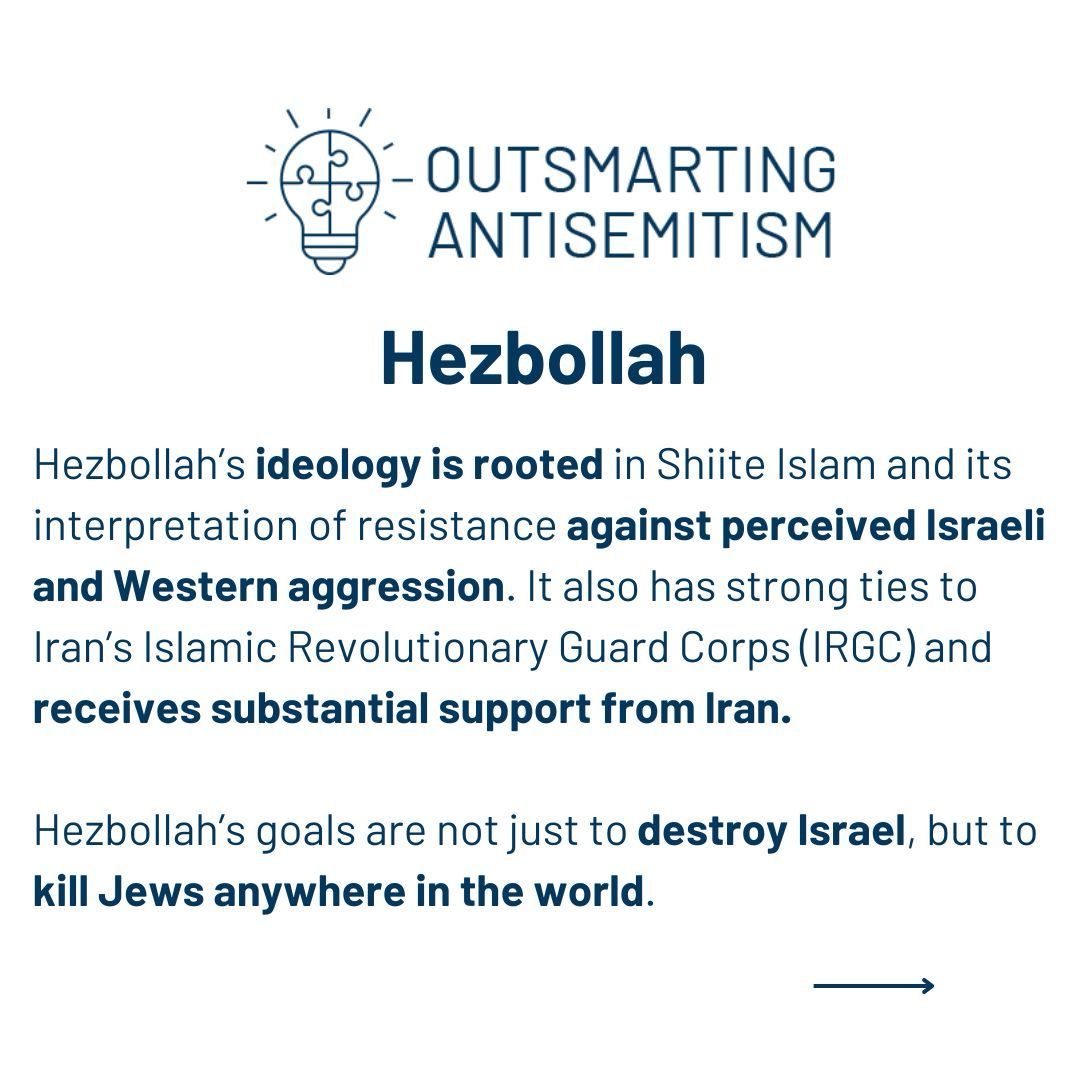Hezbollah is a Shiite Islamist political and military organization based in Lebanon. It emerged in the early 1980s in response to the Israeli invasion of Lebanon and has since evolved into a powerful paramilitary and political force within the country. The name “Hezbollah” means “Party of God” in Arabic.
Key points about Hezbollah:
- Origins: Hezbollah was formed with the support of Iran and, to some extent, Syria. It initially emerged as a resistance movement against Israeli forces that had occupied parts of southern Lebanon. Over time, it grew into a multifaceted organization with political, military, social, and religious components.
- Political Wing: Hezbollah operates as a political party in Lebanon and is part of the Lebanese government. It holds seats in the Lebanese Parliament and has representation in the Cabinet. In this way, the Lebanese Government is complicit in many of Hezbollah’s acts.
- Militant Wing: Hezbollah also maintains a well-armed and highly trained military wing, which is considered one of the most powerful non-state armed forces in the world. This militia played a significant role in forcing Israel to withdraw from southern Lebanon in 2000, and waged a significant war against Israel in 2006 after kidnapping several Israeli soldiers.
- Ideology: Hezbollah’s ideology is rooted in Shiite Islam and its interpretation of resistance against perceived Israeli and Western aggression. It also has strong ties to Iran’s Islamic Revolutionary Guard Corps (IRGC) and receives substantial support from Iran.
- Conflict with Israel: Hezbollah has been involved in several conflicts with Israel, notably the 2006 Lebanon War, during which it fought against Israeli forces in southern Lebanon. To be clear: Hezbollah only exists to destroy Israel. It has no other purpose.
- Social and Welfare Activities: In addition to its military and political activities, Hezbollah provides a range of social services to Lebanese citizens, including education, healthcare, and financial assistance.
- Designation as a Terrorist Organization: Hezbollah is designated as a terrorist organization by Israel, the United States, Canada, the Arab League, and several other countries. However, it is also a significant political and military force within Lebanon and enjoys support from some segments of the Lebanese population, particularly within the Shiite community.
- Involvement in Syria: Hezbollah has been actively involved in the Syrian Civil War, fighting alongside the forces of Syrian President Bashar al-Assad, who belongs to the Alawite sect, an offshoot of Shiite Islam.
Hezbollah’s influence extends beyond Lebanon’s borders and has a significant impact on regional geopolitics, particularly in relation to Israel, Syria, and Iran. It remains a complex and controversial player in Middle Eastern politics, and has expanded its goals not just to destroy Israel, but to kill Jews anywhere in the world.
Hezbollah has been involved in a number of significant attacks over the years, primarily against Israeli and Western targets. Here are some of the most notable incidents:
1983 U.S. Embassy Bombing in Beirut, Lebanon
On April 18, 1983, a suicide bomber drove a truck loaded with explosives into the U.S. Embassy in Beirut, Lebanon. The attack killed 63 people, including 17 Americans, and injured over 100.
1983 Beirut Barracks Bombings
On October 23, 1983, two truck bombs targeted the U.S. Marine barracks and the French paratroopers’ barracks in Beirut. The attacks killed 241 American service members and 58 French military personnel.
1992 Attack on Israeli Embassy in Buenos Aires, Argentina
On March 17, 1992, a suicide bomber drove a vehicle loaded with explosives into the Israeli Embassy in Buenos Aires, Argentina. The attack killed 29 people and injured over 200.
1994 AMIA Bombing in Buenos Aires, Argentina:
On July 18, 1994, a car bomb exploded outside the Argentine Israelite Mutual Association (AMIA) building in Buenos Aires. The attack killed 85 people and injured hundreds more.
2000 Kidnapping of Israeli Soldiers:
In October 2000, Hezbollah abducted three Israeli soldiers: Adi Avitan, Benyamin Avraham, and Omar Sawaid. Their remains were returned to Israel in 2004 as part of a prisoner exchange.
2006 Lebanon War:
In July 2006, Hezbollah militants conducted a cross-border raid into Israel, killing several Israeli soldiers and capturing two more. This incident led to a month-long conflict between Hezbollah and Israel, resulting in significant casualties and damage on both sides over 39 days.



